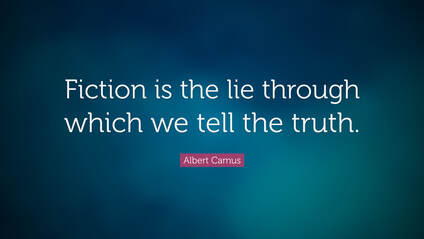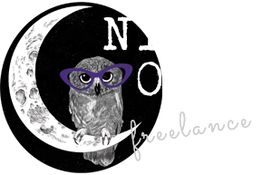|
Admittedly, I’ve grappled with this one. The value of a book should never be determined by a single judge or a small panel of judges. Authors have no idea what life experiences have influenced the opinions of the judge(s)—or how many manuscripts the judge(s) had to read in a pressured timeframe.
Did they read your submission on a day that everything else was going wrong in their life, so nothing they read that day landed quite right in their psyche? Did your protagonist have the same name as their awful ex? Do YOU have the same name as their ex—or the kid who bullied them in grade school? There are just too many subtleties influencing the spectrum of emotions in the human mind to define one’s worth as an author by a single contest. That said, it’s super fun when a talented stranger reads your work and says, “Yes! I enjoyed this manuscript more than ALL the other submissions, and I want to announce it to the world!” Just be sure to keep it in perspective. If you don’t take it too seriously, writing contests can be a fun and effective marketing tool. As such, cost is also important to take into consideration. If you don’t win, the investment can feel heftier. However, if you win, the nod from a reputable judge and the value of the marketing exposure often outweighs the entry fee.
If you’d like to roll the dice and submit your writing to some contests, below is a list of popular writing competitions for self-published (indie) authors in no particular order: (Awards with a ★ have been won by my clients) Indie Reader Discovery Awards ★ Eric Hoffer Book Award ★ Firebird Book Awards ★ Independent Publisher Book Awards IBPA Benjamin Franklin Award Writer's Digest Self Published Awards The Foreword INDIES Book of the Year Award The Next Generation Indie Book Awards Best Indie Book Award National Indie Excellence Awards Independent Press Award ★ Nautilus Book Awards ★ Just remember, if you don’t win, no one has to know you submitted! ;)
0 Comments
Finding a good book editor can be difficult. And finding a good book editor with availability is even harder. Be sure to begin your search a few months in advance of when you anticipate having your manuscript ready for editing. Try to review the editor’s website before contacting them. If the site is comprehensive, you’ll find the answers to most of your questions before needing to contact them. When you have a good idea of whether you’d like to work with that person, it’s a great time to inquire about their interest in working with you, their prices, and availability. Most editors schedule projects weeks (or months) in advance and will require a deposit ranging from a few hundred dollars to 50% of the project total upfront to schedule their time. Unfortunately, I often hear from authors how difficult it can be to get a response from editors during the inquiry process. I can’t speak for everyone, of course, but there are some common reasons for a lack of response that shouldn’t be taken personally. Always allow a few days for a response, especially over weekends. If you don’t hear back within a week, the editor may be swamped with work and not able to keep up with inquiries at that time because they can’t take on any new work. The editor may be dealing with personal issues that are preventing them from responding to new inquiries. The editor may have never seen the inquiry because it went straight to their spam folder and got piled in junk mail. (I cringe every time that happens.) But also, the inquiry may not have appealed to the editor. Whatever the case, be sure to follow up a second time before giving up and maintain a professional tone each time. To avoid the last scenario, you want to make a good first impression. If for no other reason, to set a professional tone by presenting your work with the quality of representation it deserves. If your inquiry is disjointed and scattered, it’s easy for the editor to assume your writing is as well, so the editor may be hesitant to consider working with you, let alone responding. So always put your best foot forward. The editor should do the same. If an editor shows a lack of interest in your work, don’t waste everyone’s time by trying to convince them to work with you. There will be plenty of time to jump through those hoops while trying to get the attention of potential readers. Your editor will know right away if they’re interested in working with you. I.e., after reading your inquiry, answering any questions you may have, and reviewing a sample of your work. The best way to find out if an editor is interested in your work is to send them a sample of the manuscript they would be editing. Often the editor will request a 5–10 page sample (some may want to see the full manuscript, but not until the discussion has progressed a bit). A 5–10 page sample will give the editor a strong introduction to your voice on the page and your style of writing. If your writing includes provocative, sensitive, or triggering topics, be sure to ask the editor if they are okay working with that type of content. This is an excellent way not only to screen potential editors but to establish a foundation of trust with your editor that will reap long-term rewards as the relationship builds. If the editor does not work with the type of writing you plan on sending, transparency will save both you and the editor a lot of time and grief in the future. Do some research on the various types of editing, so you’ll have an idea of what your manuscript needs to help ensure you inquire with the right type of editor—but stay open to what the editor suggests. When you send a sample of your work, most editors will send back a complimentary (or low price) sample edit with examples of what they feel your manuscript needs to avoid negative reviews from readers and be on par with best-selling titles in the same genre. Most manuscripts need a combination of editing types to ensure they are well-rounded on all fronts. Your editor should be familiar and comfortable with all the types of editing your manuscript needs.  Expect professional boundaries. If the manuscript is fiction, editors don’t need to know what part was inspired by real events to determine if the writing is good or not. “Fiction is the lie through which we tell the truth.” So there is no reason to expect an editor to become the front-row audience to your personal history. On the flip side of that, if the writing is nonfiction and you have shared intimate details from your life, you want to make sure the editor is someone you will feel comfortable giving clearance to writing that has not been released for public consumption yet. That is a delicate time for a manuscript with sensitive information, so again, it’s important to ask the editor upfront if they are comfortable working with that type of content. Be sure to select an editor who maintains your voice on the page and doesn’t make suggestions that will alter your voice or vision. Granted, there is a huge scope of variety in what developmental editors may suggest, but it should always maintain and enhance your voice without altering the intended meaning. If the editor doesn’t know how to do that, and instead you get back a pile of suggestions that sound more like personal opinions of a random reader with little basis in the craft of writing, then that’s not a good editor to work with. And finally, don’t expect an editor to be available to you outside of business hours. As intimate as the editing process can be sometimes, your editor is not an on-call therapist, family member, or close friend you can drunk-dial (or text) at 1:00 a.m. It’s important to keep expectations realistic by maintaining a professional relationship, which will help ensure your writing is getting the highest quality of feedback. Contrary to popular belief, attempting to befriend your editor won’t result in better work or discounts, and if you’re cluttering up your editor’s inbox with unnecessary emails, it may even delay the completion of your project. Sometimes genuine friendships develop naturally, but friendship is not necessary to receive stellar work from the editor. Just try to relax and let the relationship evolve organically within professional boundaries. Reaching out with a concise inquiry and requesting a sample edit from the editor is the single best way to begin the process in a positive and productive way. From there, skilled editors will take the lead and guide you through the process. Enjoy the journey! I blog about a number of ways to save money while self-publishing, but in this article, I offer tips for submitting a manuscript to potential editors (including myself) that will help ensure a lower rate for services...
First impressions have more impact on pricing than many realize. Be sure to send a clear, concise inquiry, and format your sample following academic standards:
If the editor prefers to see the full manuscript (and if/when you decide to work with the editor), be sure to send the complete manuscript in one file that is formatted as shown above. If files are sent in any other format or as multiple files that need to be compiled, the editor might interpret the project as requiring more time and may start planning accordingly pricewise. Primarily, the prices for editing services are tiered by what type of editing is needed AND how many of those corrections are needed throughout. This combination determines how many hours are needed for the editor to complete the work, and hence the price for those services. It might surprise some writers to hear that if the writing needs more work (time), that can mean less income for the editor, not more. As a business model, it is often more lucrative to take on multiple projects that require less work and can be completed quicker than fewer projects requiring more work. I can’t speak for all editors, but I am always on the lookout for strong work that I will enjoy polishing and enhancing and can edit in a reasonable amount of time for a lower price. No matter what type of editing your manuscript needs, how do you ensure it needs the least amount of it?
But if you do all that, why would you still need an editor? Because you know what’s supposed to be on the page, which makes you prone to see that rather than the error. Also, there are a lot of grammar and punctuation rules most writers miss because they weren’t familiar with them to begin with. Either way, every best-selling author has at least one editor, usually a team, including a number of proofreaders post-editing. Everyone needs fresh, skilled eyes on their manuscript, and if you do your due diligence, you’ll be able to save money in the process. Happy Writing! |
From the editor's desk...Categories
All
Archives |






